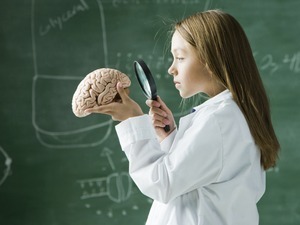Posts Tagged ‘Quantitative-EEG’
CNS Response ranked #21 Holder of Pervasive Neurotech Intellectual Property*
. CNS Response is a cloud-based outcomes-sharing platform for EEG data. The purpose of the platform, named PEER (Psychiatric EEG Evaluation Registry) is to improve treatment decisions for psychiatric conditions by referencing the thousands of outcomes from previous trial instances.
Read MoreWhy Being Young for Grade Increases Odds of ADHD Diagnosis and Stimulant Medication
ADHD is the most commonly diagnosed neurobehavioral disorder in children and substantial evidence indicates that biological factors play an important role in its development. For example, although the exact mechanism by which genetic factors convey increased risk for ADHD remains unclear, the importance of genetic transmission has been documented in a number of published studies.…
Read MoreMale clinicians may be misdiagnosing 39% of ADHD-diagnosed boys
39% We had several readers highlight this striking statistic from yesterday’s blog post, Is ADHD overdiagnosed? Findings from a new study in Germany This is but another example on the growing need to base behavioral/ mental health prevention, diagnostic and treatment not on symptoms alone, but to measure and incorporate objective markers of brain function, as…
Read MoreNeurofeedback/ Quantitative EEG for ADHD diagnosis
Like all psychiatric disorders, ADHD is diagnosed based on the presence of particular behavioral symptoms that are judged to cause significant impairment in an individual’s functioning, and not on the results of a specific test. In fact, recently published ADHD evaluation guidelines from the American Academy of Pediatrics (AAP) explicitly state that no particular diagnostic…
Read More

